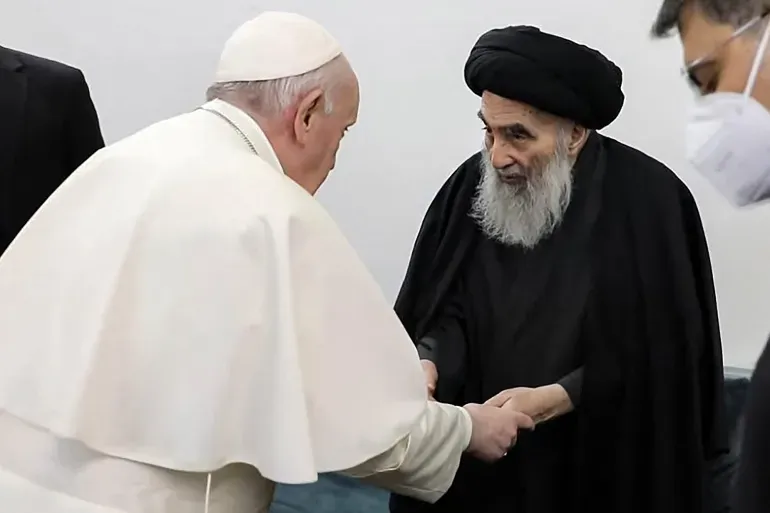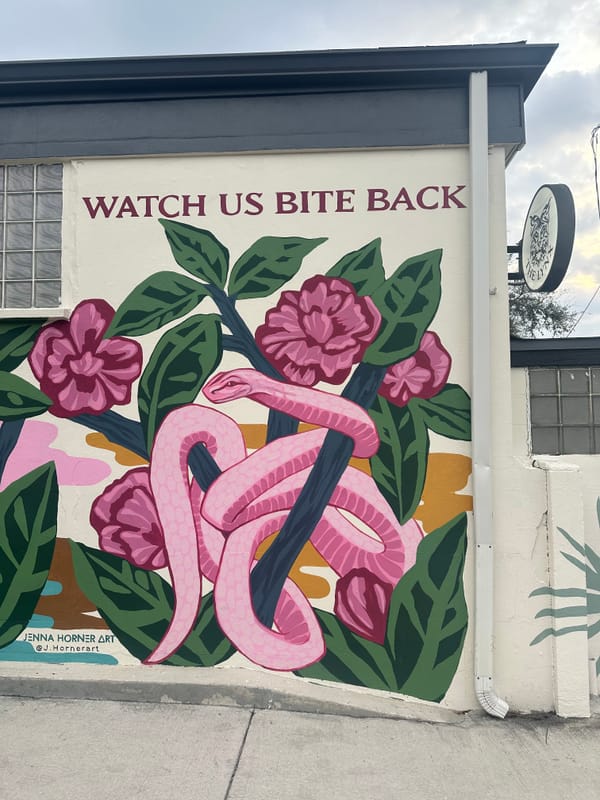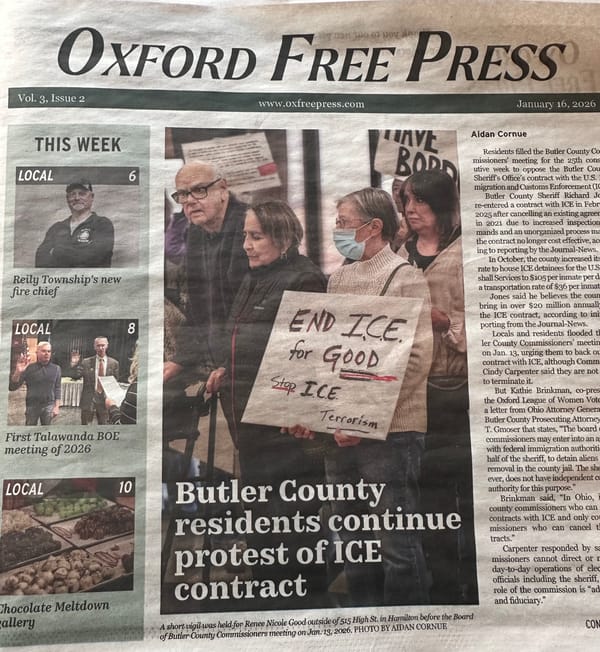The Pope's popularity in Iraq
My pope story. What's yours?
My pope story. What's yours?
In December of 2017 I traveled to Baghdad to train a group of Iraqi researchers in semi-structured interview techniques. The researchers were a diverse group of members of civil society with a variety of credentials. I was part of a team that had hired them to do interviews with Iraqis in their communities that would form the basis of a religious landscape mapping of the country.
Several months later I returned to the country to debrief the researchers. We sat around round tables and researchers shared their stories. One researcher had seen a calm cleric become enraged at the mention of another trend in his religious community, and began beating his hands on the table. Another had to stop the interview so he could smoke a cigarette. I believe what he said to the researcher was "this subject brings up deep pain in me."
Given the relatively dramatic responses that the researchers described at the debrief, I approached the transcripts of their interviews with some trepidation. But that really wasn't necessary. As I dove into the results, a number of interesting trends began to emerge. But the one that most surprised me was the enormous popularity of the pope among Iraqis of a variety of religious backgrounds. Given how sectarian many aspects of Iraqi society had become, the presence of religious leaders whose influence cut across sects was an important discovery.
To give you a taste of what the data looked like, here are a few quotes from interview transcripts:
When asked which religious leaders outside of his religion he most respected, a Shia man in his mid-forties from Najaf said, “Certainly, I respect the Pope and love him deeply and I wish I could meet him one day.” As he said this, he raised his hands as if praying to God to make it a reality. He continued, “As for the Pope, the work he has done for humanity and helping others is superior to all types of religion. To me, seeing if someone is well mannered and is putting a lot of effort in helping people demands my respect regardless of their religion.”
A fifty-year-old female Shia professor of religious sciences made a similar remark: "I respect the pope, especially in his last speech, where he says that everyone is welcome under God’s mercy."
It was clear from the transcripts that people across Iraq respected the Pope not because of his position of religious authority but because of how he had used it to embrace people of all faiths and to offer support to Iraqis in times of suffering. He built on the foundation laid by Pope John Paul II, who unequivocally condemned the possibility of war in Iraq in 2003 and had opposed the 1991 Gulf War as well. During his papacy, Pope Francis was outspoken in his support of Christians in Iraq and continuously called for peace and reconciliation in the country.
Pope Francis was particularly vigorous in his outreach to Iraqi Christians since the fall of the Ninevah Plains, an area where the majority of Iraq’s Christians lived, to ISIS in 2014. This outreach is best captured by his Letter to the Christians of the Middle East, where he singled out the suffering of Iraqi Christians, the only country that he explicitly named. Though addressed to Christians, the Pope also acknowledged the suffering of non-Christians, identifying the Yazidis by name, and calling on all religious leaders of all faiths to stand against ISIS’ crimes.
He wrote, "The tragic situation faced by our Christian brothers and sisters in Iraq, as well as by the Yazidi and members of other religious and ethnic communities, demands that all religious leaders clearly speak out to condemn these crimes unanimously and unambiguously, and to denounce the practice of invoking religion in order to justify them."
The Pope was not only popular among Iraqi citizens, he also exercised significant influence on Christian clergy in Iraq. The Pope’s Letter to the Christians of the Middle East had particular impact for the Chaldean Patriarch Louis Raphaël I Sako, who said that the letter “deeply reflect[s] our condition” and is “a source of courage and hope.” The respect between the two men appeared to be mutual; Pope Francis elevated Patriarch Sako to a Cardinal in 2018.
During the writing of the report, we had the opportunity to meet with members of the Vatican. We presented our findings, explaining how the data suggested that the pope was enormously popular in Iraq. We advocated that the Pope travel to the country and, if possible, meet with Grand Ayatollah 'Ali al-Sistani, another religious leader in Iraq whose influence cuts across a variety of sects.
The individuals with whom we met commented that the Pope had long been requesting to travel to Iraq and that his security detail had declined the request.
There's no way to know if our advocacy influenced the Pope or his advisors, but the Pope did travel to Iraq in 2021, and met with Grand Ayatollah 'Ali al-Sistani. Though the Grand Ayatollah rarely allows himself to be photographed, he permitted it in this case, a choice that made the meeting of these two leaders into a powerful symbol of the meeting of two world religions.
At this moment when our world so desperately needs leaders who will speak out against elite privilege in favor of the rights of the most marginalized, I join with all those mourning the loss of this great man, who eschewed the luxuries of his position to champion those cast aside by their societies.


